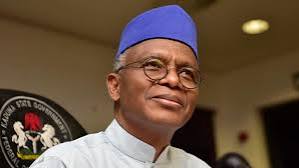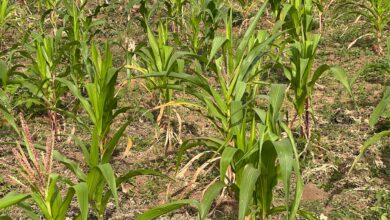New all English policy for schools against Global Standards

By Prof. Andrew Haruna, FNAL
President, Nigerian Academy of Letters (NAL)
The Nigerian Academy of Letters (NAL) expresses deep concern over the recent decision of the 69th National Council on Education (NCE) held in Akure from 3–6 November 2025, to cancel the National Language Policy (NLP 2022) and designate English as the sole medium of instruction at all levels of education in Nigeria.
The National Language Policy (2022) was established to promote mother-tongue-based multilingual education, ensuring that children receive instruction in the language of their immediate environment during their first six years of schooling. It was the culmination of over four decades of incremental decisions by the National Council on Education in favour of the use of the mother tongue in education.
Importantly, the policy was the product of years of rigorous research, extensive consultation, and expert input from scholars, educators, and communities across the country. To dismiss it so glibly, without due regard for expert knowledge and public opinion, is utterly scornful of Nigerians and does not speak well of the government’s respect for evidence-based policymaking.
Extensive international research, including UNESCO guidelines, affirm that education in the mother tongue enhances literacy, cognitive development, and academic achievement. It also strengthens cultural identity, promotes social inclusion, and supports lifelong learning.
Our own world-renowned Professor Babs Fafunwa’s Six-Year Ife Primary Education Study provided the empirical foundation for mother-tongue education, a model that has been replicated successfully around the world. The example of Bolivia, which transitioned from a monolingual Spanish state to a multilingual one and achieved an illiteracy-free status confirmed by UNESCO, is instructive. Similarly, Ghana’s recent policy pronouncement promoting multilingual education—having apparently learned from Nigeria’s model—is another case in point.
Ironically, while other African countries such as Ghana are following Nigeria’s lead, Nigeria is reversing a policy that it has not even implemented.
Furthermore, an approved implementation framework already exists as part of the National Language Policy (2022), addressing concerns about possible gaps and challenges. It appears the Honourable Minister of Education may not be apprised of this fact.
The policy was widely received both locally and internationally, and its abrupt cancellation creates the impression that government is disconnected from the aspirations of the Nigerian people.
Implications of the decision
The NAL views this policy reversal as a setback with serious and far-reaching implications:
- It undermines decades of advocacy and modest achievements in support of indigenous languages.
- It threatens Nigeria’s linguistic diversity, cultural identity, and national cohesion.
- It contravenes constitutional and educational provisions supporting mother-tongue instruction.
- It risks social and symbolic exclusion, especially for speakers of minority languages.
- It is tantamount to reverting to the colonial enterprise of linguistic domination and cultural alienation.
Ultimately, a country that deprives its young ones of education in their mother tongue has denied them access to the deepest and most authentic sources of knowledge. The mother tongue is the fountainhead of creative and independent thinking, and to sever learners from it is to impoverish their intellectual and imaginative potential.
If the policy has not been implemented, it is curious to know the source of the angst and vehemence expressed by the Honourable Minister of Education in seeking its reversal.
NAL’s Position
The Nigerian Academy of Letters affirms that mother-tongue education is essential to both educational excellence and cultural preservation. Eliminating Nigerian languages from the core curriculum:
- Weakens the intellectual and cultural foundation of Nigerian children.
- Contradicts global best practices in multilingual and inclusive education.
- Jeopardizes Nigeria’s long-term socio-cultural and educational development.
- Deprives Nigerian children of the best there is in knowledge; knowledge that begins with, and is nourished by the mother tongue.
The challenge facing Nigeria lies not in the existence of the policy, but in its effective implementation—not its reversal.
Call to Action
Government and Policymakers:
- Reinstate and uphold the National Language Policy (2022).
- Retain Nigerian languages in the national core curriculum.
- Invest in teacher training, curriculum design, and production of learning materials in indigenous languages.
- Collaborate with linguistic experts and scholars to ensure effective and phased implementation.
Civil Society, NGOs, and Cultural Organizations: - Advocate publicly for the protection of linguistic rights.
- Mobilize research and public engagement to hold authorities accountable.
Media and Public Intellectuals:
Raise public awareness, encourage informed debate, and promote linguistic inclusion.
International Partners:
Support Nigeria in aligning with UNESCO and global standards for multilingual education.
Silence is not an option. Protecting our languages and promoting mother-tongue education is a national responsibility and a moral obligation to current and future generations.
Conclusion
The Nigerian Academy of Letters remains committed to working with the Federal Government, the Linguistic Association of Nigeria (LAN), educational institutions especially the National Institute for Nigerian Languages (NINLAN), and communities to ensure that every Nigerian child learns, thinks, and innovates from a strong foundation in their linguistic and cultural heritage, while acquiring the knowledge and skills to thrive in a globalized world.





